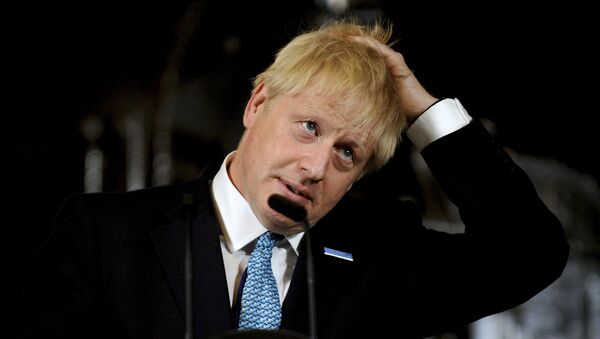On July 26, Merkel’s spokeswoman, Ulrike Demmer, said that the chancellor had congratulated Johnson on becoming prime minister and invited him to visit Germany.
Brexit
The ongoing uncertainty over the United Kingdom's withdrawal from the European Union is likely to be the central theme during Johnson's talks with Merkel as well as his talks with French President Emmanuel Macron in Paris the following day.
Johnson released on Monday a four-page letter to outgoing President of the European Council Donald Tusk stating his position on Brexit, particularly the matter regarding the border between Northern Ireland and Ireland.
The new UK prime minister wants to abolish the backstop solution that had been negotiated by his predecessor Theresa May and the European Union for over two years. The backstop entails keeping Northern Ireland in the EU Customs Union in case of a no-deal Brexit. The measure would be put into effect if an agreement on all the terms of post-Brexit relations is not reached by the end of the transition period.
Johnson’s position on the backstop is that it is "anti-democratic and inconsistent with the sovereignty of the UK," because it could keep the United Kingdom indefinitely in a customs union with Europe.
He seeks simpler alternative customs arrangements at the Irish border during two years after Brexit, with an unspecified commitment — probably a practical arrangement rather than a complicated treaty — to avoid a hard border on the island.
Possible Outcome of Talks
Several days before Johnson wrote to Tusk, German business daily Handelsblatt published a paper, allegedly leaked from the national Finance Ministry, that said Berlin had almost completed its preparations for a no-deal Brexit.
The reports were in line with the common EU position that the deal that was agreed during talks with May's government would not be negotiated further.
The United Kingdom was initially supposed to leave the European Union on March 29, but the UK parliament’s failure to approve May's deal resulted in the deadline being moved to October 31. May's failure was what ultimately forced her to resign, paving the path for Johnson to head the new government and take over the Brexit issue.


